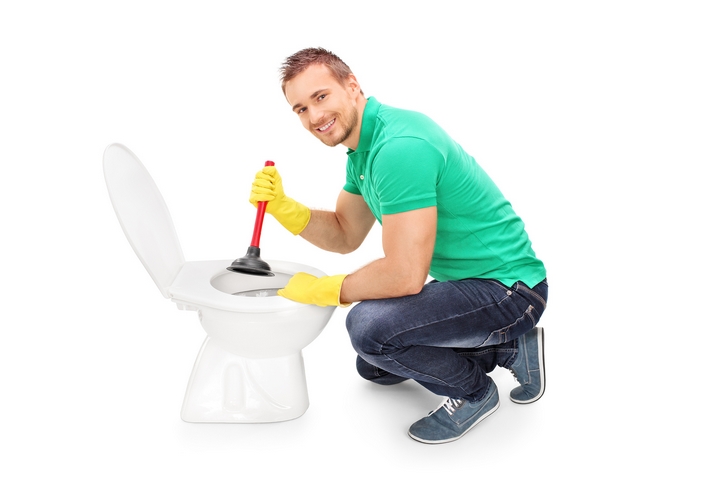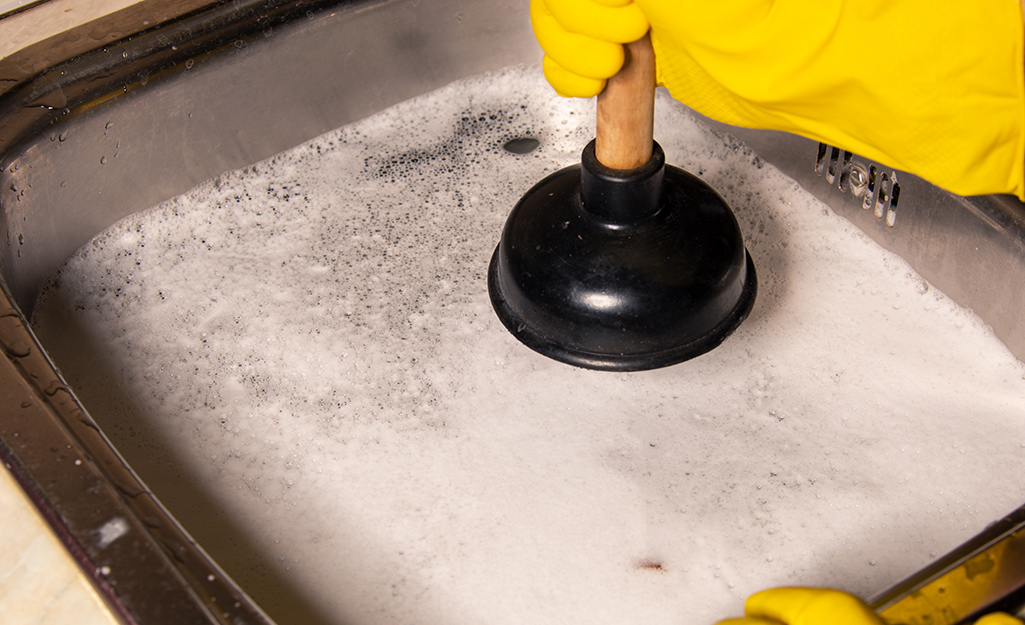Utilizing Plungers and Drain Cleaner: Professional Tips
Utilizing Plungers and Drain Cleaner: Professional Tips
Blog Article
Every person has got their own opinion on the subject of Here's How to Correctly Use a Toilet Plunger.

Introduction
Proper maintenance of home drains is necessary for protecting against obstructions and ensuring smooth water circulation. Among the secret devices in every homeowner's toolkit is the bettor, alongside various drainpipe cleaners created to tackle stubborn blockages effectively. This post checks out how to utilize plungers and drain cleaners effectively to maintain your drains streaming openly.
Section 1: Recognizing Bettors
Kinds of Plungers
There are several kinds of bettors available, each created for different sorts of drains and obstructs. The most typical types include mug plungers, flange plungers, and accordion bettors.
Just How Plungers Work
Plungers work with the concept of creating pressure and suction to remove blockages. When correctly applied over a drain, they produce a vacuum that can take out particles or separate obstructions.
Choosing the Right Bettor
Selecting the best bettor relies on the type of drainpipe and the nature of the clog. Mug plungers are excellent for sinks and bathtubs, while flange bettors are better matched for commodes as a result of their layout.
Typical Errors with Bettors
Avoiding these mistakes makes certain effective plunging: incorrect seal around the drain, inadequate pressure, and not clearing surrounding debris.
Area 2: Using Plungers Effectively
Preparation
Prior to plunging, guarantee the bettor covers the drain entirely and develops a tight seal. Clear any kind of noticeable debris around the drainpipe opening.
Method
Beginning with gentle diving movements to build suction. Increase pressure gradually, utilizing a steady rhythm. Repeat as required until the drain removes.
Repairing Tips
If diving doesn't function, try readjusting the seal, applying oil jelly for a much better seal, or utilizing a different sort of bettor.
Section 3: Comprehending Drain Cleaners
Kinds Of Drain Cleaners
Drain cleansers can be chemical or enzymatic. Chemical cleansers use solid chemicals to liquify obstructions, while chemical cleansers utilize all-natural enzymes to break down raw material.
Just How Drainpipe Cleansers Job
Chemical cleaners react with blockages to dissolve them, while enzymatic cleaners break down organic materials like hair and grease without hurting pipes.
Security Factors to consider
Always use gloves and eye protection when utilizing chemical drain cleansers. Guarantee ample air flow and comply with manufacturer guidelines thoroughly.
Eco-Friendly Alternatives
Take into consideration making use of vinegar and cooking soda or enzyme-based cleansers for environmentally friendly options that are safer for pipelines and the atmosphere.
Section 4: Making Use Of Drain Cleansers Effectively
Application Strategies
Put chemical cleaners directly right into the drain opening. Enable them to work for the advised time prior to purging with warm water. Enzymatic cleansers need to rest overnight.
Precautions
Avoid blending various types of cleansers, as this can produce toxic fumes. Never ever make use of chemical cleansers in conjunction with a plunger, as splashing can happen.
Handling Persistent Obstructions
For persistent clogs, consider utilizing a plumbing snake or calling an expert plumber to avoid damage to pipelines.
Verdict
To conclude, understanding just how to utilize bettors and drain cleaners effectively is vital for maintaining healthy pipes systems. By choosing the right devices and strategies, property owners can deal with small obstructions and prevent significant pipes issues down the line.
5 Steps on How to Use a Plunger Effectively
Creating a Seal: Place the rubber cup of the plunger firmly over the toilet drain hole to create an airtight seal. This seal is crucial to prevent air from escaping and ensure effective plunging.
Plunge Gently: Gently press the plunger down to compress the air inside without causing splashing. This careful action sets the stage for effective unclogging without creating a mess.
Maintaining Pressure: Consistently apply pressure to the plunger while pushing and pulling it up and down. This sustained pressure generates the force needed to dislodge the clog.
Breaking the Clog: Continue plunging until you feel the clog release. Look for the water to start draining, indicating successful removal of the blockage.
Flushing and Cleaning: After clearing the clog, flush the toilet to confirm it's working properly. Clean the plunger with warm, soapy water and disinfect it for future use to maintain hygiene.
Additional Tips on How to Correctly Use a Plunger
if you encounter resistance, add some water to the bowl to create better suction;
check the plunger for any rubber cracks to ensure it's in good condition;
exercise patience and persistence, as certain clogs might need multiple attempts.
Mistakes to Avoid when Using Toilet Plunger
avoid using excessive force, as it may damage the toilet;
don't rush the process; take your time to ensure a proper seal and pressure;
never use a plunger if you've recently used chemical drain cleaners
Conclusion
Mastering the art of how to properly use a plunger is a valuable skill for every homeowner. By employing the correct techniques, you can effectively address clogs and ensure your toilet functions smoothly. Patience, persistence, and proactive in maintaining your plunger's hygiene are key to success in this endeavor.
Armed with these skills and principles, you can confidently handle plumbing issues as they arise, promoting a well-functioning and hygienic home environment.
https://homealliance.com/blogs/how-to-effectively-use-a-plunger-the-ultimate-guide

Application Strategies
Put chemical cleaners directly right into the drain opening. Enable them to work for the advised time prior to purging with warm water. Enzymatic cleansers need to rest overnight.
Precautions
Avoid blending various types of cleansers, as this can produce toxic fumes. Never ever make use of chemical cleansers in conjunction with a plunger, as splashing can happen.
Handling Persistent Obstructions
For persistent clogs, consider utilizing a plumbing snake or calling an expert plumber to avoid damage to pipelines.
Verdict
To conclude, understanding just how to utilize bettors and drain cleaners effectively is vital for maintaining healthy pipes systems. By choosing the right devices and strategies, property owners can deal with small obstructions and prevent significant pipes issues down the line.
5 Steps on How to Use a Plunger Effectively
Creating a Seal: Place the rubber cup of the plunger firmly over the toilet drain hole to create an airtight seal. This seal is crucial to prevent air from escaping and ensure effective plunging. Plunge Gently: Gently press the plunger down to compress the air inside without causing splashing. This careful action sets the stage for effective unclogging without creating a mess. Maintaining Pressure: Consistently apply pressure to the plunger while pushing and pulling it up and down. This sustained pressure generates the force needed to dislodge the clog. Breaking the Clog: Continue plunging until you feel the clog release. Look for the water to start draining, indicating successful removal of the blockage. Flushing and Cleaning: After clearing the clog, flush the toilet to confirm it's working properly. Clean the plunger with warm, soapy water and disinfect it for future use to maintain hygiene. Additional Tips on How to Correctly Use a Plunger
if you encounter resistance, add some water to the bowl to create better suction; check the plunger for any rubber cracks to ensure it's in good condition; exercise patience and persistence, as certain clogs might need multiple attempts. Mistakes to Avoid when Using Toilet Plunger
avoid using excessive force, as it may damage the toilet; don't rush the process; take your time to ensure a proper seal and pressure; never use a plunger if you've recently used chemical drain cleaners Conclusion
Mastering the art of how to properly use a plunger is a valuable skill for every homeowner. By employing the correct techniques, you can effectively address clogs and ensure your toilet functions smoothly. Patience, persistence, and proactive in maintaining your plunger's hygiene are key to success in this endeavor.
Armed with these skills and principles, you can confidently handle plumbing issues as they arise, promoting a well-functioning and hygienic home environment.
https://homealliance.com/blogs/how-to-effectively-use-a-plunger-the-ultimate-guide

As an enthusiastic person who reads about , I was thinking sharing that blog post was important. Do you know about somebody who is interested by How to Use a Plunger to Unclog a Toilet or Drain? Feel free to share it. Thanks for taking the time to read it.
Click Here Report this page